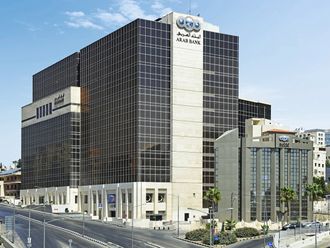
Dubai: Etihad Credit Bureau, the much awaited federal-level credit bureau, began issuing credit reports on Monday.
The bureau will initially offer this service to banks and financial institutions that have submitted historical credit data to the bureau and subscribed to access the credit reporting system.
The credit reports will include consumers’ debt obligations and payment behaviour patterns for the past 24 months.
“These reports will no doubt contribute positively to the banking sector, playing an important role in the assessment and management of credit and possible losses resulting from non-performing loans. Individuals will in turn, be able to have a comprehensive overview of their current financial obligations and debt payment frequency and consistency over the past two years,” Etihad Credit Bureau said in a statement.
The bureau has completed uploading customers’ credit information for the past 24 months, in addition to individuals’ Emirates ID details. About 5.2 million credit facilities of individuals residing in the UAE have been added to the bureau’s credit reporting system. This represents 97 per cent of the total credit facilities provided by local and international banks and financial institutions operating within the UAE, including credit card and loans.
“The issuance of credit reports to banks and financial institutions is an important step in reducing credit losses resulting from non-performing loans and will in turn help individuals and companies to have a deeper understanding of their financial obligations and debt levels,” said Marwan Ahmad Lutfi, CEO of Al Etihad Credit Bureau, ahead of the credit report issues.
In addition to banks and financial institutions, individual customers will shortly be able to request their credit reports through the bureau’s customer service centres in Abu Dhabi and Dubai.
Banks in the UAE have welcomed the launch of the credit bureau. The UAE Banks Federation, a professional representative body representing 49 member banks operating in the UAE has affirmed its support to credit bureau.
“The establishment of a reliable credit bureau is a positive step for both banks and customers. It will enable banks to take well informed credit decisions. In the long run, it will improve portfolio quality for the banks and ensure responsible lending to customers by preventing them from getting into debt that they cannot afford,” said Abdul Aziz Al Ghurair, Chairman of the UAE Banks Federation.
Senior bankers said the availability of credit reports will create a transparent business environment for banks.
“Availability of credit data will improve transparency and credit quality in the banking system. We have been closely cooperating with the credit bureau to achieve its goals. From our experience in different markets across the world we are sure of the benefits it bring to the banking system,” said Mohshin Ali Nathani, Chief Executive Officer of Standard Chartered UAE.
Bankers said the availability of credit reports will help banks get a better understanding of their customers and avoid excesses of the past while it will also assist customers with strong credit history to get a better pricing on their loans.
Recent regulations on lending limits, mortgage regulations based on clearly defined loans to value ratios and lending based on credit data obtained from bureau is expected to help healthy and sustainable growth in the retail banking business in the UAE that has often been susceptible to high incidence of bad debts.
With the launch of credit bureau, in the short run, the banking system in the country is expected to witness a certain amount of consolidation of indebtedness consequently a reduction in the loan growth. Today, the UAE runs, per person close to $95,000 (Dh348,650) as indebtedness. Currently there is only limited control on indebtedness through the calculation of debt burden ratio (DBR) and in-house market intelligence of banks.
The Institute of International Finance (IIF) expects loan growth in the UAE to moderate this year. The loan book of UAE banks grew moderately by 4.8 per cent year on year in the second quarter despite recovery in the real estate sector and overall economic growth. “We expect the loan growth to come down this year due to transparent credit data and central bank regulations relating to exposure to real estate sector,” said Garbis Iradian, Deputy Director of Institute of International Finance (IIF) for Middle East and Africa.












